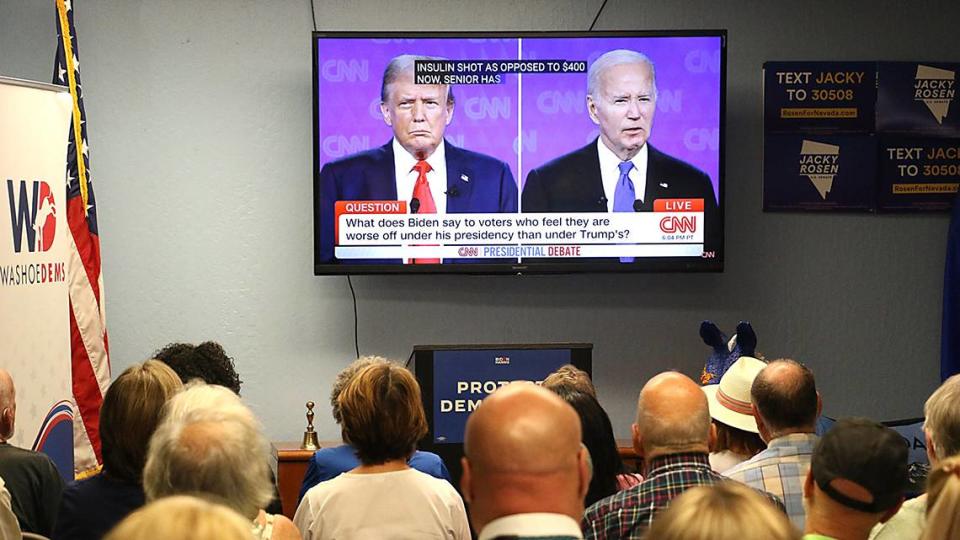Media coverage of both presidential candidates plays into false stereotypes about age | Opinion
I am 73 years old. Like the president, I walk more slowly and talk more softly than I once did. I no longer run marathons, but I walk and work out most days. As baseball great Don Newcombe reportedly said about his own physical abilities, “I throw the ball as hard as ever, but it just takes longer to get to the plate.”
The speed of one’s fastball, or one’s step, may be job-related for professional athletes, but not for most Americans. In its 1967 statement of findings and purpose for the Age Discrimination in Employment Act, Congress concluded that “the setting of arbitrary age limits regardless of potential for job performance has become a common practice” and it outlawed such arbitrary age limits.
Yet media coverage of the age of both major-party presidential candidates plays into the prejudices that Congress sought to look beyond in the Age Discrimination in Employment Act. The possibility that a presidential candidate may step down can create rare political drama. But the media framing of this possibility has not been healthy — especially in light of a recent Census Bureau finding that the U.S. population age 65 and over “grew nearly five times faster than the total population over the 100 years from 1920 to 2020.”
According to a 2023 Pew Research Center survey, 79% of Americans favor maximum age limits for elected federal officials. This seems particularly problematic, because — in contrast to Supreme Court Justices — the public has the right to vote against a federal official every two or four years if that official is not fulfilling the duties of federal office.
Rather than focusing on whether particular officials would properly perform their duties, age continues to be used by the mainstream media as a surrogate for incompetence and inability. There have been few serious discussions by physicians, psychologists and scientists about the impact of aging on job performance. Instead, news anchors and guests have repeated said things such as, “We all have had experience talking with older relatives about whether they should still be driving.” The mainstream media thus presumes that:
its audience consists primarily of middle-agers who have “older relatives,” and
there is a direct, immediate and measurable correlation between age and ability to drive. However, no state requires individuals to surrender their driver’s license because of their age.
This correlation of age with disability may stem, at least in part, from the age of and worldview of mainstream newscasters. Few of these individuals themselves are over age 65 (as are more than 1 in 6 Americans). Aging presents trade-offs for us all. For many, quick recall and physical mastery may decline, but expertise and experience increase. Political candidates and all other job-seekers should be evaluated based on their mental acuity and other abilities actually related to the positions that they seek.
It may be difficult to determine and measure the essential competencies for a political candidate, but most people would include on their list such qualities as honesty, empathy and strategic decision-making. A candidate’s age correlates with none of these qualities. But the media’s extensive framing of presidential qualification as a question of age may well change the way in which we view all older Americans.
As a country, we need to move beyond evaluating individuals based on stereotypes dependent on one’s race, color, religion, gender, national origin — or age.
R. Lawrence Dessem is dean emeritus and the Timothy J. Heinsz Professor Emeritus of Law at the University of Missouri School of Law in Columbia. He served as trial attorney and senior trial counsel in the Civil Division of the United States Department of Justice during the Carter and Reagan administrations.



